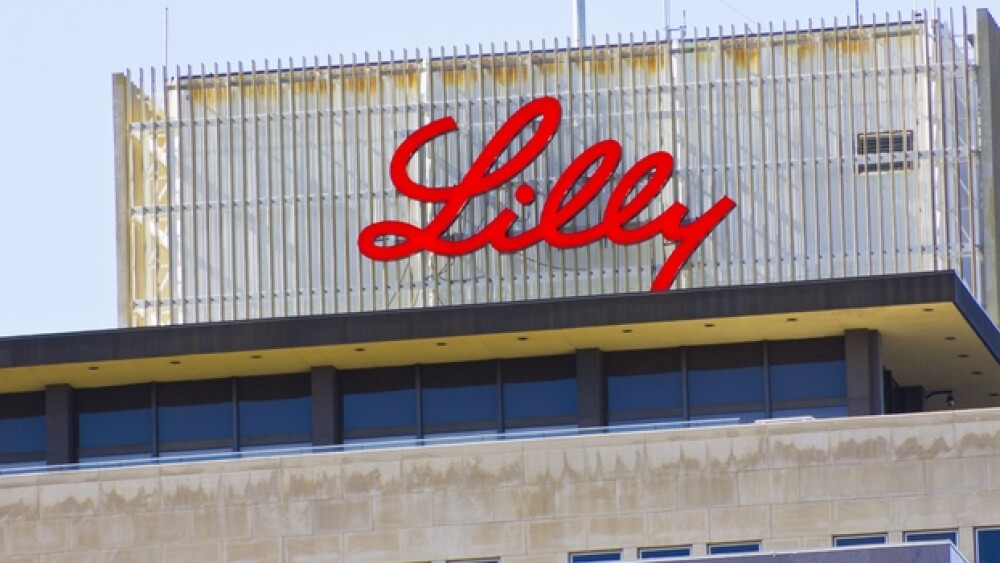Eli Lilly is moving quickly to get a newly-approved precision oncology treatment, Retevmo, for certain lung and thyroid cancers into the hands of patients.
Retevmo is now FDA-approved. (Jonathan Weiss/Shutterstock)
Eli Lilly is moving quickly to get a newly-approved precision oncology treatment for certain lung and thyroid cancers into the hands of patients.
Following U.S. Food and Drug Administration approval of Retevmo (selpercatinib) on Friday, Indianapolis-based Eli Lilly said it planned on having the drug available for patients within one week through specialty pharmacies. Lilly is moving fast due to the fact Retevmo is a first-of-its-kind treatment. The drug is the first treatment approved for adult patients with metastatic rearranged during transfection (RET) fusion-positive non-small cell lung cancer (NSCLC), and the treatment of adult and pediatric patients 12 years of age and older with advanced or metastatic RET-mutant medullary thyroid cancer (MTC) who require systemic therapy, or advanced or metastatic RET fusion-positive thyroid cancer who require systemic therapy and who are radioactive iodine-refractory if appropriate.
Retevmo, a selective RET kinase inhibitor, was approved under the FDA’s Accelerated Approval regulations based on the LIBRETTO-001 Phase I/II trial’s endpoints of objective response rate (ORR) and duration of response (DoR). Lilly gained Retevmo through its $8 billion acquisition of Loxo Oncology last year.
Anne White, president of Lilly Oncology, a combination of Loxo Oncology and the Lilly Research Laboratories oncology organization, said the company is proud of how quickly Retevmo was brought to patients. In February, Eli Lilly secured priority review for selpercatinib, almost three years after the drug first entered clinical trials. White said this represents the most rapid timeline in the development of an oncology medicine with multiple indications.
“We applaud the FDA for their leadership and collaboration, recognizing the importance of bringing a new therapy to patients with advanced or metastatic RET-driven lung and thyroid cancers,” White said in a statement.
The FDA approved Retevmo based on the results of a clinical trial involving patients with each of the three types of tumors. Alexander Drilon, acting chief of early drug development at Memorial Sloan Kettering Cancer Center and lead investigator for LIBRETTO-001, said during the clinical study, researchers observed that the majority of metastatic lung cancer patients experienced clinically meaningful responses when treated with selpercatinib, including responses in difficult-to-treat brain metastases. In the study, up to 50% of patients with RET fusion-positive NSCLCs can have tumors that metastasize to the brain. Among previously treated NSCLC patients with measurable brain metastases, 10 out of 11 patients observed intracranial responses, with all 10 patients experiencing a CNS DoR of greater than or equal to six months.
“The approval of selpercatinib marks an important milestone in the treatment of NSCLC, making RET-driven cancers now specifically targetable in the same manner as cancers with activating EGFR and ALK alterations, across all lines of therapy. I am pleased that patients with these RET-driven cancers have this newly approved option,” Drilon said in a statement.
Two confirmatory Phase III trials are being conducted. Retevmo was granted Orphan Drug designation for the treatment of RET fusion-positive NSCLC and for the treatment of RET fusion-positive and RET-mutant thyroid cancers including poorly differentiated thyroid cancer, undifferentiated or anaplastic thyroid cancer, MTC and locally advanced or metastatic follicular or papillary thyroid cancer.
Retevmo does contain a safety warning for hepatotoxicity, hypertension, QT interval prolongation, hemorrhagic events, hypersensitivity, risk of impaired wound healing, and embryo-fetal toxicity.





